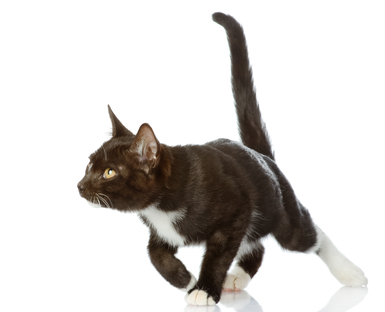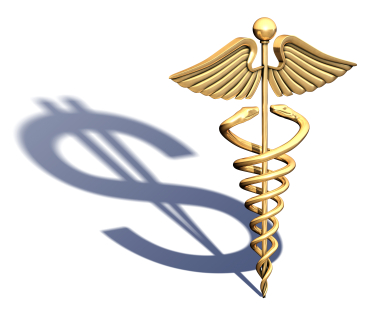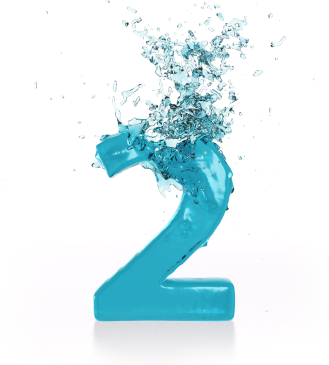The alternative alternative: physician-prescribed alternative medicine
In addition to exploring mid-life emotional, physical and social issues, Flashfree is about effective alternatives to hormone replacement therapy for menopausal symptoms. A huge challenge in this arena is that alternatives are often automatically dismissed as “woo woo” medicine, with naysayers claiming that there is little scientific evidence to support their use. Nevertheless, I have long believed that with the proper considerations and adjustments to the way that medical studies are conducted, findings might prove to be very different than they are. That’s why I’m heartened to read that mind-body medicine, which includes yoga, tai chi, qi gong, meditation, guided imagery, progressive muscle relaxation and deep breathing, comprises a large portion of the types of practices that are being incorporated into everyday life (and medicine).
Is the tide turning?
It may be, at least when it comes to mind-body strategies.
According to a study in this week’s Archives of Internal Medicine, over 41 million Americans report trying some sort mind-body strategy. More importantly? About 1/8th, or 6.36 million of these individuals are using these strategies on the recommendation of their healthcare providers, most of which involves deep breathing, meditation and yoga or a combination thereof. Moreover, complementary strategies are apparently suggested mostly in people who have chronic illness, such as pulmonary disease or anxiety. On a broader level, physicians are increasingly recommending mind-body therapy to individuals with neurological deficiencies including headaches, migraines, back pain with sciatica, strokes, dementia, seizures or memory loss. Meanwhile, in so far as menopausally-related symptoms, there is evidence that mind-body medicine may ease hot flashes and promote overall wellbeing (which in turn, eases symptom severity).
For something that is as easy and safe as mind-body medicine, one has to wonder why it’s taking so long to catch on. And yet, the question remains: are physicians starting to turn to alternative or complementary strategies because conventional medicine isn’t working or has been just about exhausted for a particular condition or patient? Is it possible that physician recommended alternative strategies lead to better outcomes or declines in use of the healthcare system? Only time will tell.
Stay tuned.
Read MoreSkinning the cholesterol cat
 It’s difficult to pin down the reasons underlying an increasing risk for heart disease as women age. Menopause in particular is associated with a rapid increase in blood LDL cholesterol and triglycerides levels and declines in HDL cholesterol levels. And, while some researchers claim that hormones are at-play, others suggest that it is increased risk is associated with a gradual decline of cells that act to repair and replenish circulation. Regardless, it is well accepted that high levels of LDL can increase the risk of atherosclerosis and that even early signs of high cholesterol levels should raise a few red flags in the health department.
It’s difficult to pin down the reasons underlying an increasing risk for heart disease as women age. Menopause in particular is associated with a rapid increase in blood LDL cholesterol and triglycerides levels and declines in HDL cholesterol levels. And, while some researchers claim that hormones are at-play, others suggest that it is increased risk is associated with a gradual decline of cells that act to repair and replenish circulation. Regardless, it is well accepted that high levels of LDL can increase the risk of atherosclerosis and that even early signs of high cholesterol levels should raise a few red flags in the health department.
Most recently, the American Heart Association and American College of Cardiology issued controversial recommendations that statins should be used in anyone who has a greater than 7.5% chance of having a heart attack or stroke or developing heart disease over the following 10 year period. However, lifestyle modification, i.e. adopting a healthy diet, engaging in regular physical activity, controlling diabetes and high blood pressure and weight loss may be an effective answer in some people. For others, there is new evidence suggesting that the Chinese herbs Danshen (Salvia miltiorrhiza) and Gegen (Radix pueraidae), aka D&G, may help to lower LDL, improve the functioning of the lining of the heart and lower carotid intima thickness (the thickness of the two innermost walls of the artery). These two herb roots are more commonly known as red sage and kudzu, respectfully, and previously clinical trials have demonstrated their potential for control of heart pain and other cardiac symptoms.
Traditional Chinese Medicine is often disputed in allopathic medicine and many practitioners believe that its role in disease is unproven. Nevertheless, the 12-month, randomized controlled study among 165 postmenopausal women who took either daily D&G or placebo may put some of these challenges to rest. All of the study participants had what is considered borderline high cholesterol at the study’s start. And, while D&G had no discernible impact on blood pressure, women taking D&G experienced significant declines in carotid intima-media thickness compared to women taking placebo. This benefit appeared to be even greater after more than six months of treatment.
Additionally, the researchers reported a ‘remarkable’ decline in both LDL and total cholesterol levels compared to placebo (6.9% versus 3.2% LDL, 5.8% versus 3.4%, total cholesterol) even though these figures did not reach statistical significance. They also found that when they evaluated quality of life, a significant decline in mental health scores was observed in the placebo group while a significant increase in general health scores was observed among women taking D&G.
Almost as important, no significant side effects were reported.
The researchers say that they cannot identify the reasons underlying these benefits and that molecular studies are needed to explain the biology underlying the improvements. However, it is clear from this small study that there a different ways to skin the cat called high cholesterol and that statins aren’t the only game in town.
Stay tuned!
Read MoreWednesday Bubble: the menopause ‘expert’
Does anyone else find it ironic that in a society where aging is taboo, menopause is the next big ‘thing?’ Yes, retailers, charlatans and ‘experts in everything menopause’ abound and they want you to believe that what they are selling will cure all that ails.
As I have written time and again on this blog, ‘one size fits all’ is a bad approach to health and wellbeing. Universally, many of us experience hot flashes or night sweats or mood swings or dizziness. But individually? Your challenges are unlikely to be exactly the same as mine, which is why I consistently recommend that you see a practitioner before trying any treatment or management strategy. All I can do is provide the information to allow you to make informed choices with someone who is trained in medicine or naturopathy, or herbal therapy or acupuncture or Traditional Chinese Medicine or yoga, or bioidentical hormone therapy or HRT. But take note: despite what we would like, no, love to believe, chewing a menopause gum will not eliminate your hot flashes. Drinking a menopause drink is unlikely to balance out those mood swings. A bed fan may not make you and your partner more comfortable as you sweat the night away. And, a shaman is probably not going to collectively alter a bunch of chakras via a video series.
Am I angry? As a matter of act, I am mad as hell and I am not going to take it anymore. And neither should you.
Am I for sale? No, I am not for sale nor is the blog a platform for others to take advantage of you. My promise since starting this blog echoes how I live my life: straight, no shooter, no bullshit, no games, honesty, sincerity and integrity. I am not trying to convince you that my way is the highway. Rather, my goal is and has always been to provide you with the most current, scientifically-driven information so that decisions and choices are well-informed and methodical. And when I review a product, it is an honest review framed by full disclosure. Moreover, while I try to be as objective as possible, this blog is not journalistically driven but rather, informed by my personal experiences and may, at times, reflect my subjective views. As always, I leave to you to decide what information you can use and what information you want to dispose of.
If you are wondering about the impetus for this post, let’s just say that for months now, I have participated in a LinkedIn group where I observed the voices of the well informed being drowned out by the collective who don’t have your best interest at heart. And, after one of these members crossed a line and used the platform to send me a form letter blatantly inquiring if I would pimp her product and become a shill for her program, I decided to sever both ties.
The Menopause Industrial Complex is becoming very noisy. It is going to be harder and harder to discern reality from fantasy and real strategies from snake oil. When someone calls themselves an ‘expert’ step back and do your homework. Look deeply into their background, credentials and experience. Ask about their training, skill set and think about their motivation. Then step back and do it again. And then talk to other women who have used what they are selling. Always question testimonials, studies that only survey a bunch of people via the web or have only been conducted in animals. A money back guarantee is not a guarantee of success. And one size fits all rarely works. Mostly? Trust your gut. If it smells like a rat and looks like a rat, it’s probably a rat.
Read More
Wednesday Bubble: Two is the Magic Number?
When it comes to Traditional Chinese Medicine (TCM), is two the magic number? A variety of studies have examined the utility of TCM for menopausal symptoms and some have shown good benefit. However, does combining distinct forms of TCM yield better outcomes? Moreover, are these outcomes equal to those achieved by hormone therapy?
They may very well be, according to a small study that was presented this past May at the International Research Congress on Integrative Medicine and Health. Published in BMC Complementary and Alternative Medicine, the study explores the use of a Chinese herbal formulation named Kun Bao Wan alone and in combination with acupuncture and compares it to hormone therapy. Available in powder form and priced at approximately $8.00 a box, Kun Bao Yan is used in Chinese medicine to balance hormone levels, relieve insomnia and improve blood circulation to restore healthy metabolism. A web and database search yielded almost no information on side effects, reinforcing the need to work directly with a practitioner versed in Chinese medicine versus using it on your own.
Regardless, over a two-month period, 57 women in peri- or full on menopause took Kun Bao Wan (5 gm. twice a day) alone or in combination of 5 acupuncture sessions a month, or were assigned hormone therapy. During this time, symptoms (hot flashes, tingling, insomnia, nervousness, weakness, dizziness, palpitations) were measured with a scientifically validated index. The researchers also assessed hormone levels (FSH, estradiol) and symptom severity and frequency.
The findings appear to indicate that while all three strategies can significantly decrease menopause symptom scores, better results were achieved with Chinese medicine plus acupuncture compared to Chinese medicine alone, particularly in women who were postmenopausal. Additionally, Chinese medicine plus acupuncture was on par with hormone therapy with regards to its overall effects on FSH. Importantly, none of these strategies appeared to affect levels of circulating natural estradiol.
Granted, this study is quite small. But it does show that with Chinese Medicine, two combined modalities may be better than one. And are certainly on par with hormone therapy — and perhaps even safer.
Read More
Does your mental energy need a boost?
Mental energy. That elusive construct that is defined by our mood and feelings of fatigue or energy, our motivation, determination and enthusiasms and our ability to sustain focus and attention. I don’t know about you but I find that my mental energy is not always optimum. Moreover, I am not surprised; between physical, work and life demands, I am often overworked, overextended and overstressed. Personally, I find that downtime, exercise and creative endeavors help to refuel and refresh. However, can foods do the same?,
According to researcher Michael C. Falk from the Life Sciences Research Center in Bethesda, MD, part of the challenge in determining whether or not certain substances can enhance mental energy is the diverse number of methods used to measure effect. So, a lack of proof of the benefit of a particular substance might be partially related to the method. Nevertheless, in a recent study, he and his colleagues identified the most widely studied substances in diet and supplements: Ginko biloba, ginseng, glucose and omega-3 fatty acids and examined how they might be impacting the different facets of mental energy.
The findings:
Ginkgo biloba Ginko has been used in Traditional Chinese Medicine (TCM) for centuries, mostly for age-related declines in cognition, dementia and for Alzheimer’s. Unfortunately, it hasn’t shown much promise in this regard, but some data suggest that it might have use in improving mood, boosting how quickly individuals process information, and even improve attention. Less clear, however, how much should be taken and in what form (i.e. supplement or extract) or the length of time before results are seen.
Ginseng Like Ginkgo, ginseng is another herb that is common to TCM, either alone or in combination with others. An important challenge when using ginseng for medicinal purposes is that it quality is highly variable, which is why, similar to other herbs, you need to look for standardized formulations. When it comes to mental energy, the verdict is still out and research studies are inconclusive. The question remains, however, whether or not this is due to the fact that claims that it boosts mental prowess are false or that the actual ginseng being studied is too varied in quality and the part of the plant from which study formulations are derived are inconsistent.
Glucose Sugar. Not only is it an essential energy source for the body but it is the brain’s primary energy source. And yet, the studies that have looked at the effects of glucose on brain function, memory or even mood are all over the map and according to researchers, not very well documented. So before you start in on the next sugar buzz, you might want to find another boost for your mood, fatigue or focus.
Omega-3 fatty acids I love fish oils. Researchers continue to study them because their utility is so broad, although the source of omega-3, dosage and ratio of EPA and DHA appear to be important factors in terms of mood (i.e. depression in particular) and mental energy. Overuse of fish oils can also impair the ability of blood to clot and depress overall immune functioning. Still, out of the dietary components that researchers studied, omega-3’s were by far the one most backed by clear data. Most recently, they’ve also been shown to help prevent stroke. In so far as mental energy goes, the researchers note that evidence suggests that fish oils may help delay or reduce cognitive decline in the elderly or improve verbal fluency. Less clear is whether this benefit is stronger if the they are taken earlier in life before cognitive decline. And of course, there is litte agreement on whether or not fish oils supplements convey the same benefits as obtaining the through dietary sources.
The upshot is that the evidence is scattered, inconclusive and downright shoddy in some areas. And mental energy might need more than certain foods to reach its optimum level. Personally, I’m going to stick with my current program to maintain the mental mojo. But I’m open to suggestions. What about you? How are you dealing with the overworked, overextended and overstressed paradigm?
Read More









